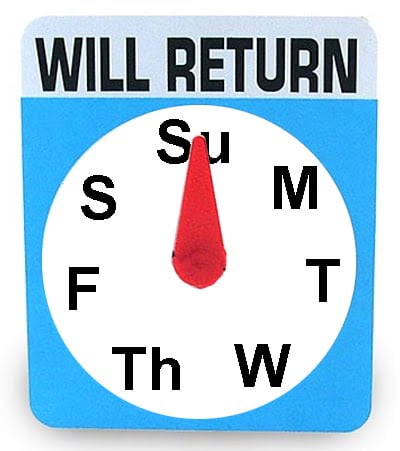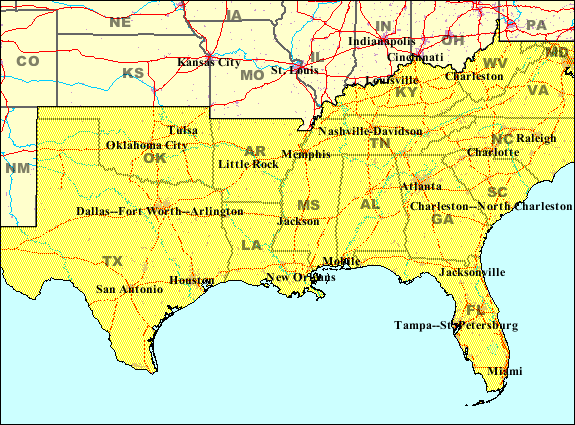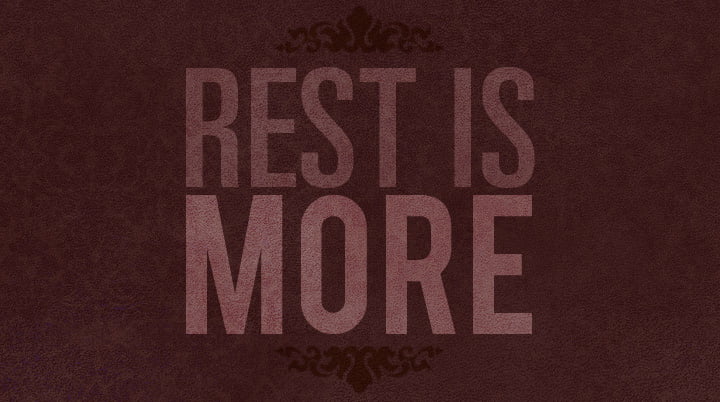*As we returned back to the sanctuary this morning after our Sabbatical period in the Plaza room. It was good to mark the occasion with this litany I wrote:
As we gather together again in this room, we say how much God has blessed us with this beautiful worship space.
We thank you God for our sanctuary.
As we gather together in this room, we are thankful for the ways in which God has been present with us while we’ve been on Sabbatical in the Plaza room.
We thank you God for being in our midst in new ways.
As we gather together in this room, our hearts are full of joy for all of the moments of connection to the Holy that we’ve had here: weddings, baptisms, tears in prayer, and sharing the Lord’s Supper around the Table.
We thank you God for being in our midst in the years you’ve given us in this space.
As we gather together in this room, we declare that your spirit is present wherever 2 or 3 are gathered in your name and so a future journey with you awaits us.
We thank you God for all that you will show us in the worship hour ahead and pray this day that we might be present to joyfully receive!
 When I began the journey into the strange world called being a Baptist female pastor, I knew there would be challenges. I knew there would be folks who would throw the Bible at me wondering if I believed in the same gospel as them. I knew I would have trouble finding positions to serve that my male colleagues would obtain with ease. But, what I didn't know is that some of my toughest critics would be my sisters, those who had come before me or joined the ranks of being a woman in ministry.
When I began the journey into the strange world called being a Baptist female pastor, I knew there would be challenges. I knew there would be folks who would throw the Bible at me wondering if I believed in the same gospel as them. I knew I would have trouble finding positions to serve that my male colleagues would obtain with ease. But, what I didn't know is that some of my toughest critics would be my sisters, those who had come before me or joined the ranks of being a woman in ministry.
I once worked with a female supervisor who made a very big deal about wearing closed toe shoes in the pulpit. No exceptions during the time I worked under her. What was the big deal about open toed shoes-- too sexy? I laugh about it with this colleague now and wear open toed shoes in the pulpit regularly. And, I've never heard complainants about my shoes being a distraction . . .
I have a colleague my age who was told once by an older female supervisor that she had to always wear pantyhose to church-- even if she wore pants and even in the summer. Why? Don't dare show one's skin as a female? I have been known not to wear hose to church in the summer especially as I regularly preach in a robe over my clothes anyway. No one can see my legs after all, so who cares?
I supervised a female seminarian once who had just finished her initial preaching class the semester before with a female professor at a Baptist seminary. When I asked her some of the most memorable things she learned, she was quick to say:"We spent a whole session without the men in the room with the professor describing what kind of bra we should wear when we preach." What??? There are no words for this.
The more I've learned about the "backstories" to these encounters of mentoring, the more I've also heard that the older women who teach such things usually don't exactly know why they believe so strongly in these practices. It is just what they do. It was another woman who put the fear of God in them about shoes, hose and bras for preaching that they felt the necessity to put that same fear into their younger colleagues.
To all of this, I say it must stop.
To be a woman in ministry is not to become less of a female or to try to achieve some level of perfection so that we reflect well on our older mentors as one blog post yesterday seemed to suggest.
We, as women need to stop being the worst critics of one another.
Sure, appropriate dress, appropriate speech, appropriate presentation of our appearance are important professional development learnings, but my sisters, let us not take out the struggle of how hard it has been to get where we are on each other. There are some expectations that go beyond the realm of what it means to be human.
My sisters, practice kindness wear fun shoes while you do it.
"I love you."
It takes a relationship to a deeper level like no other three words can. Where were we when we first said the "L word?" Often couples remember this moment in their dating time together more than any other. Who said it first? How often did you want to say it afterward-- screaming to the world, "He loves me!" and "She loves me too!" Time is marked with particular delightfulness.
Recently, I was chatting with a friend, when out of the blue the conversation was ended with a hug and the simple statement of "I love you." Nothing was meant by this phrase, other than the simple wish of how much our friendship meant to him. I was taken back and warmed in spirit all at the same time.
No matter who it comes from, there is something often shock ing about these words, especially when we hear them for the first time.
ing about these words, especially when we hear them for the first time.
But, what if such a word is not said often. What if such a word has not been said in years? What if great damage has been done in the name of the "L word?" What is unconditional devotion has been promised and pain has been inflicted in its place?
Where does this leave the hopeful beauty of these words?
One of the ministries of my congregation is a card ministry: telling visitors, new members and older members alike that they are thought of when they are going through a difficult time, experience a period of joy or loss. Though I know there is not anything unusual about this (lots of churches regularly send care, concern and celebration cards to their members), the more I have observed this ministry in action, the more I've realized there is something deeply rooted in the character of our congregation through these cards. And, it's love.
The first time Kevin and I got one of these cards, I was first shocked that I got something from the church that I didn't send myself. Then, as I read the note, I was overwhelmed by the fact that every single person who signed it included the word, "Love" before their name. The genuine nature of their spirit leapt off the page. Furthermore, I was not getting special treatment because I was the pastor. This is what they did for everybody! It was such a natural practice to say to their church family: "I love you."
What might it look like if our churches used these three words more often? What if the basis of our relationships with one another began with this? What if we not only loved each other through cards, but through actions and appropriate expressions of love such as hugs more often than every couple of years?
With all of the damage that has been done by persons in positions of power using "I love you" to manipulate, control and orchestrate inappropriate relationships within the church, I fear we as people of faith have lost the beauty of these words to bringing healing, comfort and joy to those in whom we are in community with. For as much as our society has commercialized romantic love, it's not the only love to be found in our lives. I can say that if all I had in my life was the love from my significant other, I know my life would not be as rich as it is right now because I'm a part of communities full of love for one another.
Who might we need to take the leap of vulnerability with today and say simply, "I love you?" Where in our lives do we need to be more open to receive the outpouring of the blessings of love from others? How might giving and receiving love begin to transform our communities into more faithful, God centered places?
Go ahead. Just say it. "I love you."
 Yesterday was the last Sunday in our "Sanctuary on Sabbatical" worship series. After four weeks of worshiping in the Plaza Room sitting around round tables in a participatory style of gathering, we will return to the sanctuary this Sunday to resume "normality."
Yesterday was the last Sunday in our "Sanctuary on Sabbatical" worship series. After four weeks of worshiping in the Plaza Room sitting around round tables in a participatory style of gathering, we will return to the sanctuary this Sunday to resume "normality."
This idea for summer worship emerged out of several conversations with my clergy group during a retreat last May, and as much as I was excited about it and found the worship ministry team excited too there was fear in me about this "shaking things up" idea . I wondered what it would feel like to worship in a different space. I wondered how the congregation would respond to the intentional change. I wondered how preaching without a manuscript and notes only would feel, and could I really do it? I wondered what first time visitors would think and if they would be scared away by what one member called "coffee hour church."
Yet, unless I just haven't heard-- there haven't been too many complaints. Several folks have expressed how much they like the "close feel" of the service and how they liked how personal and engaging the sermon and music was.
I would love to hear from others about what you thought of worship this July. This is what I am thinking, though:
1. I delighted in having the personal interaction with the congregation during the sermons. Instead of going through a manuscript and wondering at times what the congregation was thinking, during the past several weeks there would be times when I would stop and ask questions and actually get to hear what the gathered community thought. Loved it!
2. With that said, my love of a manuscript has grown. As good as it was to have spontaneous responses, I look forward to getting back to having words carefully chosen. Manuscript preaching is simply my style. But as I go back to my style, I hope to incorporate a type of sermon delivery that makes space for more causal moments from time to time.
3. It was beautiful to hear Ken, our music director lead us through moments of singing that felt more worshipful than I've experienced at Washington Plaza in a long time. I look forward to the congregation singing more response songs such as "Hear Our Prayer O Lord" (which we sang every week) in the future.
4. I felt closer to my church family, their needs and prayers throughout the month. There's something about sitting close to people in worship-- you begin to realize that this "following Christ" thing is not something you are doing alone.
5. Communion was served every week, and I'm still processing how I felt about it. My goal was to offer a teachable moment between the spiritual food of communion and the physical food that we eat together each week as we gather for lunch. I'm not sure I found a way to make this connection explicit and I'm unclear if anyone in the congregation found meaning in the greater frequency of taking communion.
6. To my surprise over the past four weeks, there have been fewer people saying for lunch after the service than usual. Maybe it is because folks have gotten their "fellowship fix" during the course of the service or maybe it is summer and folks just have other places to go. The lack of people sticking around for lunch after worship has been a disappointment.
7. I will be glad not to worry so much about the room set-up. As is the case with many small churches, the pastor and a few others do a lot of the work when anything new is attempted. It took a lot of time on Sunday mornings to transform the Plaza Room (where we normally host classes and meals) into a worship space. A few of us did a lot of the work, and this always brings cause for concern and exhaustion afterwards.
So, will we do it again next summer? I hope so. All in all, it was a refreshing break, a good sabbath even with the challenges. But, see you on Sunday UPSTAIRS!
 What is right in front of our faces, what seems urgent , what we are asked to do: such are the tasks we usually engage in first every day. And while some of us are better at long-term to do lists and planning, most of us are prone to tackle first what we have to do to survive, keep our jobs and when all else fails, sleep and eat!
What is right in front of our faces, what seems urgent , what we are asked to do: such are the tasks we usually engage in first every day. And while some of us are better at long-term to do lists and planning, most of us are prone to tackle first what we have to do to survive, keep our jobs and when all else fails, sleep and eat!
In the process, we become forgetful.
I see this principle lived out in my faith community formation every week. As easy as it is to dream big dreams, set out great intentions, what it means to be a human being often is to do first for ourselves, rather than what is a community's or another individual's need. Before you think this blog post is a rant against selfishness, hear this: it's not that I think we are all unkind or not compassionate, but that we get busy and we forget.
The problem lies less in our ability to care, but the time we give in our schedules TO care.
It's easy to just overlook someone when he or she is not begging for our attention or asking for something. It's easy to not notice a person being absent for several weeks and several weeks turns into several months and then all of a sudden we realize that we haven't seen so and so since last Easter. It is easy to not own up to our forgetfulness after some time has past without contact. People begin to slip through the cracks of our membership roles, our databases and our memories.
Might part of our gospel ministry as people of faith be about the practice of "Forget Me Not?"
In a society that moves too fast to even remember what day it is often, I believe it is the calling of the church to continually slow each other down so that we can remember to give action to our compassion.
Remember: when someone is having surgery or soon facing a scary doctor's appointment.
Remember: when it is the first anniversary of the death of a loved one.
Remember: to call and say, "I missed you."
Remember: to meet petitions for prayer with compassionate and supportive gestures of support.
Remember, simply remember to see each other.
Throughout scripture, there always seems to be such a call to do just this. Remember my covenant . . . Remember what the Lord has done for you . . . Remember the Sabbath and keep it holy . . . Remember the orphans . . . Remember the widows. And, the list could go on and on.
At Washington Plaza, we are thinking about ways in the coming months that we can be better about this, especially to those who are going through long periods of illness or who are homebound. I'm grateful for the leadership of the deacons on this matter and their keen insight to draw this important pastoral care need to my attention.
Yet, no matter if we find ourselves this day in a church leadership position or not, I believe the call remains the same for all of us as part of the human family. We are all a part of some gathered community of friends and acquaintances where we have countless opportunities to notice, listen and remember.
Who might you need to remember today? In doing so, you might just find open doors of beautiful relationships that are yet to be!
Does calling to a particular congregation automatically mean you are required to give your whole life to a particular group of people?
 Recently, I finished a wonderful pastoral memoir called Breathing Space: A Spiritual Journey in South Bronx by Heidi Neumark. Heidi is a Lutheran pastor who writes about her 20ish year journey with a congregation in transformation in a neighborhood also in transition. Pastor Heidi lived in the neighborhood where she worked and full enmeshed herself and her family (husband and two children)-- worshipping, playing, and shopping in the blocks surrounding her church.
Recently, I finished a wonderful pastoral memoir called Breathing Space: A Spiritual Journey in South Bronx by Heidi Neumark. Heidi is a Lutheran pastor who writes about her 20ish year journey with a congregation in transformation in a neighborhood also in transition. Pastor Heidi lived in the neighborhood where she worked and full enmeshed herself and her family (husband and two children)-- worshipping, playing, and shopping in the blocks surrounding her church.
The journey Pastor Heidi described I found much kinship in, even though our settings are quite different. She arrived at a congregation without the physical, emotional or spiritual infrastructure for long-term survival. She was greeted, nurtured and sustained in her early years there by some amazingly faithful saints of God who inspired her to fully commit herself to the work at hand. She saw in her diverse faith community great potential.
While it was a beautiful journey to read about, I begged to ask myself the question on countless occasions while reading it, how in the world was this pace of life sustainable? And, it seemed that Pastor Heidi asks herself this question over and over again too; thus, the title of the book, breathing space.
Yet, there were points in the book where my heart stirred for her because it seemed that she was so close to finding the answers but just kept on working "for God."
Consider this, Heidi Neumark writes:
We had a German student, Bend, staying here and visiting the church for two months. At the beginning, he asked me about friendships in the parish and how it worked to maintain friendships in other places. I said that it was hard to do because most of our friends now lived at some distance, but that it didn't bother me at all. My work and my family were more than enough. When I said it, I believed it was true. But I remembered exactly what I was doing when he asked the question. I was standing at the sink washing pesto of the dinner plates. I remember the Brillo pad in my hands, the pieces of green pasta and bits of garlic stuck to the plates, the running water. I washed dishes countless time since then, but I can't remember one. I was fooling myself when I thought it was an easy question.
It is true that my work and my family fill my heart and occupy my days. . . . It was easy to become Bernd's friend because it was convenient. He was right there. When he left, I had to ask myself-- am I sad because Bernd is leaving or because another friend is moving out of reach? It was both. But friendship is not always, or at least in my circumstances, not usually convenient. (90-91).
Of course, friendship is not always convenient. It really isn't, and usually the things that are most life-giving to our souls aren't.
One of the biggest sins, I think, of those serving in pastoral ministry is regularly doing what is right in front of us. Someone need to go to coffee? I'm there. Someone in the hospital for the fifth time this month? Sure, I'll visit them again. Need someone to serve on this denominational board? Sure, I can go to those extra meetings. We just aren't good at saying, "No" or "Later."
I believe such practices are where we as pastors hide, under the banner of "the busyness of ministry." To this, I say, ministry is only as busy as we make it. Of course there are unexpected funerals. Of course there are unexpected building issues. Of course there is someone who needs to talk on a day when such is not scheduled. But, when we look at our calendars, as ministry leaders, are we intentionally making time for things that matter to us?
Are we finding breathing space through relationships outside of the church?
Are we talking time each week to remember we are always more than our jobs?
Are we finding more out about the people God has made us to be so that upon retirement we aren't just starring at the walls wondering who we are without the church to tell us?
The longer I read Pastor Heidi's memoir, the longer, I wished for her a long retreat with some of the dear friends that she mentions moving away. I wished for her a longer time a part each year from her church so to get an even great respect for its context. I wished for her peace, so not to feel as if she was carrying this burden of a church in transition alone.
Breathing space after all, I don't think just comes to us. We have to grow a place in our souls and calendars for it to live. And, how beautiful such space can truly be!
 Normal patterns of ministry outreach for children during the summer for churches is a little thing called Vacation Bible School or better known as VBS. The basic idea is that a summer's worth of educational curriculum is packed into one week of the summer during either a day or night camp at a local congregation. It's usually a great introduction for children and their parents to a local church, an introduction that families may not otherwise of had without the draw of VBS. While fun for kids, it is a lot of work to pull together in terms of volunteers, supplies and promotional materials. And, often churches of small membership just don't have the funds, personnel, or energy to pull something like this off-- as much as they say they want to be welcoming to children.
Normal patterns of ministry outreach for children during the summer for churches is a little thing called Vacation Bible School or better known as VBS. The basic idea is that a summer's worth of educational curriculum is packed into one week of the summer during either a day or night camp at a local congregation. It's usually a great introduction for children and their parents to a local church, an introduction that families may not otherwise of had without the draw of VBS. While fun for kids, it is a lot of work to pull together in terms of volunteers, supplies and promotional materials. And, often churches of small membership just don't have the funds, personnel, or energy to pull something like this off-- as much as they say they want to be welcoming to children.
Such has been the stance of Washington Plaza Baptist for years. With limited resources, there hasn't been money or time or support to get a traditional VBS or something like it on the calendar. As much as the congregation would have desired to host a week of children's fun, there was really no way that we could pull it off by ourselves.
When I arrived at WPBC almost three years ago now, we didn't have a history of children's summer programs at all. I knew in due time this would have to change.
Yet, one of the greatest lessons I learned in seminary about congregational ministry is that it is ALWAYS contextual and the accepted norms must always be pushed just a little. Programmatic one-size fits all curriclum just work if you don't consider the neighborhood. And there ARE things you can do even beyond all imagination!
This is what is true about our situation:
1. We are in community with merchants and individuals directly. Sitting on a plaza alongside restaurants, shops and tenants alike, we have a direct presence in our particular neighborhood-- more than most-- that can't be ignored.
2. While we don't have the visibility on greater social networks or a PR chairperson in our congregation, we are connected to a neighborhood, Lake Anne, that does.
3. While we don't have the personnel to pull off a week's worth of Sunday School like activities for kids, a small committment of time (i.e. one night a month, for a month) IS something we can ask of our congregants. Vacation and busy work schedules can work around this type of commitment.
4. While we don't have a budget line item for supplies, we do have some amazingly talented resources people in our midst who can (and have) written curriculum, found supplies and donated snacks so that we have absolutely everything we need to make a children's event work.
To all of this context and culture, Washington Plaza came up with the idea this spring to further expand our partnership with the neighborhood we've established the past two years through "Family Fun Night" block parties morphing them into "Fabulous Fridays" a modified Vacation Bible School for kids on Friday evenings in July. We are marketing it as a "Parent's Night Out" or "Parent's Date Night" with support from the local merchants who are giving out dinner coupons for any who leave their kids with us. What a beautiful combo!
All the fun began last week as we learned about the story of the Good Samaritan, made crafts, ate cupcakes and chicken nuggets and played some cool games and sang songs. And, I'm sure some of the adults had even more fun than the kids!
This is what I know for sure: as the children are learning about what it means to "Grow in Faith" this summer during Fabulous Fridays, our congregation is doing just the same. We're growing in our understanding of outreach. We're growing in our desire to be a valuable member of the Lake Anne community. We're growing in our passion to share God's love with all of our neighbors. It's a great experience for all.
See y'all tonight at 6:30!
No matter if a church really means it, it's been a rarity that I've found a church that doesn't say it is welcoming to the community. They want newcomers. They want new members, preferably those who tithe or bring in income. They want (or at least just appear) to be open to using their building for the good of their neighbors.
But, yet with all of this true, when push comes to shove, it is always harder than it seems.
In my father's church I that grew up in, I can remember a time when the congregation made an over-the-top gesture to allow the neighborhood Boy Scout Troop to meet in the fellowship hall for free. Everyone was excited about it. I mean, who doesn't want to help out the Boy Scouts? And if the church got new members out of it, even better!
This enthusiasm ended, however, the Sunday morning when the church parishioners arrived to find that not everything was in  order. Several of the scouts had taken the costumes for the children's Christmas play and re-arranged them. They moved Ms. Faye's cheese (i.e. the props for the children's play) and she didn't like it one bit . . . the sheep wool was gone. Later it was found out that the unsupervised boys had removed the cotton stuffed in the sheep's costumes and tried to flush it down the toilet. The downstairs bathroom was overflowing and talk of "those Boy Scouts" was on the lips of everyone in the sanctuary that morning. The chairman of deacons (who was married to Ms. Faye of course) demanded that the church kick the boy scouts out immediately.
order. Several of the scouts had taken the costumes for the children's Christmas play and re-arranged them. They moved Ms. Faye's cheese (i.e. the props for the children's play) and she didn't like it one bit . . . the sheep wool was gone. Later it was found out that the unsupervised boys had removed the cotton stuffed in the sheep's costumes and tried to flush it down the toilet. The downstairs bathroom was overflowing and talk of "those Boy Scouts" was on the lips of everyone in the sanctuary that morning. The chairman of deacons (who was married to Ms. Faye of course) demanded that the church kick the boy scouts out immediately.
But what about Christ's welcome? What about living in community with neighbors?
On Sunday morning at Washington Plaza, as a group arrived to set up for our Sanctuary on Sabbatical worship series in the Plaza Room, we too had our limits of welcome pushed too.
God has blessed our congregation with facility whereas many churches in our area do not. We are happy to open up our building to the community and are grateful that the income received from this helps to support our mission and ministries. We are eager to be of support to any community group that can be blessed by our space, including new church starts.
One of the churches that meets in our building seems to continually have a supervision problem when it comes to their children. They meet on Saturday and Sunday evenings in the Plaza Room. It's a normal practice to walk in on Sundays and find food left out from the previous night's fellowship, markings on the wall, or one of locks in the children's ministry cabinet broken. But, usually it isn't too bad. We keep trying to teach, being forgiving and kind.
But the thorn of this problem keeps returning and getting worse!
 This Sunday, we found gum on the floor, caked dirt on the floor and carpet in the entry way, children's supplies, stolen, and locks taken off the supply cabinets. Can I just say the word, gross!! It looked like a scene out of Pippe Longstockings.
This Sunday, we found gum on the floor, caked dirt on the floor and carpet in the entry way, children's supplies, stolen, and locks taken off the supply cabinets. Can I just say the word, gross!! It looked like a scene out of Pippe Longstockings.
We too wondered what we should do. Of course love of neighbor always means boundaries. The question is: "Where are those boundaries?"
But, these are some of the hardest questions that churches, especially urban ones wrestle with every week. For to be loving doesn't mean you get to be abused or kicked to the curb either. So, where is the line?
Know that our relationship with this congregation is being prayerfully examined by our Trustees and we would ask for your prayers too as we try to work out what is best for both of us.
I guess, I'll add Sunday's adventure in pre-church cleaning and conflict management to the list of things I never learned in seminary that community building is all about: gum on the floor, cotton stuck in the toilet and all.
Editor's note: back by demand, here's a post I wrote several months ago on another site. I thought it would be a great conversation to begin again.
Several months ago, our church moderator came to me as I was trying to make a difficult decisions about whether or not to attend a normal church event or to take some needed time with my husband. I was struggling. I really thought I should be at church. It was really hard for me to embrace the fact that it was going to be ok if I was not there.
And then, the church moderator, came and boldly addressed me. She said the problem was that I had the "Baptist Women Syndrome."
I was quick to ask what in the world she was talking about? I'd never heard of such a thing.
"Wasn't I doing a good job? Didn't she see how hard I was working being attentive to the details around the church? Didn't she see that I was trying to keep all my responsibilities covered at work, home and in life?"
And her reply went something like this: "That's exactly the point. You are a Baptist woman what you've just described is exactly what you do."
She went on, "You've worked so hard to get where you are. You've had to perform 10x faster and higher than your male colleagues to even be considered for ordination. There are hundreds of women who would kill to have your job . . . . Your syndrome is that you think if you stop for a second or show weakness or humanity, it will all be taken from you."
Though these words were hard to hear, the more I thought about it, the more I realized she was completely right. I do have the Baptist woman syndrome. And, I know there are sisters of mine out there who have it too.
For it is true, being a Baptist woman in ministry means that you always have to have your act together. You always have to know your stuff. You always have to preach better. You always have to present yourself well. You always have to be thinking of how to get a higher education degree. You always have to be ready to be the token female at any Baptist association meeting. You always have to be ready to talk about I Timothy. You always, always.
Though we trust our congregations called and choose us because they believed in what we could offer them as a leaders, there is something in the back of our head that says, "Beware: this can all be taken away very soon."
The problem with all of this nonsense is that it leads us in patterns of behavior that are less human. We work longer hours even when we are part-time staff. We work for less money with a smile on our face because we have a job. We take on extra denominational responsibilities that our male colleagues don't want. We take the youth on one more outing even with the weekend away from our children. We don't ask for help when we are on the edge of burnt out, sick or overwhelmed. We don't complain. We show up, we do, and we keep going until we have to take drastic measures to change things because we've been doing it so long that we don't know how to stop.
A colleague shared this quote with me today from Barbara Brown Taylor's Leaving Church, "The call to serve God is first and the last call to be fully human."
I fear my colleagues and I have kept putting serving God and the church so high up on the priority list that we might just be becoming less and less human every day.
If we are going to have to get over our syndrome, my ministry sisters, then we are going to have to keep taking courageous steps to keep remembering we are more than our jobs. We have to take vacations and turn our cell phones off. We have to audaciously trust God to bring us ministry opportunities to us that help us to be who we need to be in all areas of our lives. We have to trust our moderator when she says, 'Chillax and take the Sunday off." And, I'm learning to say: "Thanks be to God."
 I was raised in the South. I went to college in Alabama. I attended seminary in North Carolina. I learned to eat fried chicken at church potlucks and hymn sings. I was given pearls for my high school graduation. I studied BBQ in its various forms in my Southern History class in college. I learned "cola" as "Coke" for it was the only soft drink that you ever drank. I was as Southern as you come . . . accent included.
I was raised in the South. I went to college in Alabama. I attended seminary in North Carolina. I learned to eat fried chicken at church potlucks and hymn sings. I was given pearls for my high school graduation. I studied BBQ in its various forms in my Southern History class in college. I learned "cola" as "Coke" for it was the only soft drink that you ever drank. I was as Southern as you come . . . accent included.
The pace of life, the readiness of religious opportunities, and the cheap cost of living make the southern part of the United States a wonderful place to grow up and to settle down. I always thought I would attend seminary and return to Alabama to live for the rest of my life.
But, not until I left the South via my first job posting in Maryland (and I know several of you would argue that Maryland is still the South, but for argument sake it isn't Mississippi), did I begin to realize the deep tensions remaining in this part of the country: how broken this region still is over race in more ways than just having "bad sides of town" and "low-income schools." Racial stereotypes are woven in how everyone seems to relate to one another. And, I knew that the life I wanted for myself-- rich in diversity-- would be easier to establish in an area of the country like Washington DC.
How easy I forget, though, how spoiled I have become until I make journeys down south to catch up with friends and family from time to time. Not that the Mid-Atlantic region is perfect, by any means, but it is easier to make friends here of different cultures, races, and traditions as if it is no big deal. Easily I can begin to think that race and nationality are descriptors that just don't apply anymore. Yet, last week, I learned again in Georgia and Tennessee, that our DC life is not the norm.
When folks are described in every day conversation it seems that no one is described without referring to the color of their skin.
When folks of a different color of skin are mentioned, there is a change in facial expression, body language and tone of voice when speaking of this person.
Certain activities are associated with racial groups. I heard it said in the line in at the movie theater by a Caucasian child talking to her Caucasian mother, "I don't want to see that movie. It's a black person film." I heard it said, "That mall is so ghetto. If you drive by that part of town keep your doors locked."
In all of this, I was sobered to think about the world view of my nieces and nephews have and will continue to have are based on unfair biases. Thinking that ALL persons of certain racial groups are somehow less than them because their skin is darker.
The more I thought about it, the more I realized that the real issue in rural southern USA is not race, but what race has meant for the lack of educational and economic opportunities. And, these lack of opportunities continue to oppress.
While interacting with several of Kevin's former high school classmates at his reunion party, I realized that the persons from his class who had been "more successful" in moving away to bigger cities, receiving high education, and maintaining well-paid jobs were Caucasian. I don't think that this is because color of skin has anything to do with intelligence, but because of how environmental factors have diminished opportunities for those with darker skin, Hispanic and African-American alike. And, as a result of these lack of educational and economic opportunities, social tensions were created in an multi-racial gathering of this particular party i.e. the African-American persons had more things in common to talk to one another about not because of their "blackness" but because of their type of jobs, housing and life ambitions.
And so at this particular party, the social dynamics were less about desire to get to know someone who shared different physical features from you (because this didn't seem to be the issue) and more about not having anything to talk about with someone who was from a different racial group. Segregation occurred in more complex ways than first observed.
Do you see how this cycle of racism lives? It overwhelms and frightens me. And, I understand how easily these social patterns of relating to one another will continue and continue for a very long time unless the church both in the South and in other parts of the country, among other social justice groups, seek to address the disparity of this issue right on. Saying, it is not ok to identify your neighbor on the bus, in the grocery store, or who fixes your tv, by their race. It's just not ok, ever. And, it is not ok for my child to go to school with books that are new and your child not to simply because of the part of town in which they live. It's not ok for the church to sit on the sidelines and do nothing to speak of the segregation race still seeks to cause.
Of course it is easier to speak of the disparities of lifestyle by race, saying, "It's what the Mexicans do" or "It's where the black people hang out" or "Our town is so white" but really in the end, it's not about race as much as it about what life has offered us. This fact, I believe needs to be more clearly understood.
I for, one, was glad to be back on my street of diversity a couple of days ago, to be in conversations where the fact that a family is Indian or Asian or whatever doesn't really matter. But, I came back with eyes open to new prayers I have for the great human family and the children who grow up not being taught by their parents, teachers and pastors any better. Praying as Jesus did on the night before his death: "Holy Father, protect them by the power of your name-- so that they may be one as I am one with you."
 If you look at my current contract with the church, it says that I get so many days off a year and so many personal days for medical emergencies and the like.
If you look at my current contract with the church, it says that I get so many days off a year and so many personal days for medical emergencies and the like.
When I first came to be the pastor here, there were conversations with the personnel committee about the details of all of my "off time." I remember seeking to explain to the chair of the committee who wanted to offer me a certain number of hours off a week, that this just made no sense. Hours off? I had no idea how this would work. I explained that the only real time off I recieved best came in chunks-- when I could take a week or more of time to be off call, in another place, not responsible for sermon writing, visiting and email responses.
Yet, the longer I do this job, I know that being on vacation is like a myth that might only come when I'm no longer employed.
I say this not because I have some super high maintenance congregation of folks who ask for my constant attention-- who constantly call me on my off days and expect an email reply right away. (I'm very blessed, I know). But, I believe that vacation is a myth. It is not how the pastoral vocation goes and those who seek to engage it are wired.
Last week, Kevin and I had the opportunity to take a southern tour of sorts with stops among both of our families in Tennessee and Georgia. It was a action packed road trip of stops along several points of importance to both of us.
And, so, I did not preach on the last Sunday of June. I did not Skype into committee meetings. I did not reply to many emails. I really tried to be present and enjoy the time with family and friends that I normally don't get to spend as much time with. But, in the end, I wouldn't say that I stopped working, though.
I got ideas about a new hymnbook that I would like our congregation to explore using while sitting in a congregation for worship on Sunday morning.
I experienced conversations with friends that raised questions in me about my own sense of calling and what this means for my congregation.
I watched movies with themes that I probably will explore in upcoming sermons.
I read a wonderful book about the rhythms of pastoral life that I would never have time to complete and digest in regular week of work.
I talked about what I do, when asked, at a gathering and doors were opened for ongoing dialogue with new friends about issues of faith.
I stayed in touch with my congregation through the wonderful world of social media . . . that I would do anyway, in town or not.
Though I have some friends who would say to me, "Just turn your brain off. Stop thinking. Stop working. You are on vacation after all." I can't though. I am pastor not just when I meet the hours a week required of me for my job, but in real life wherever it takes me. Some may call me me an overachiever, while many would come to understand this as calling.
Vacations made us better at what we do, as pastors, not because we simply go away and do nothing, but because we keep our hearts open to the fresh wind of the Spirit. The last time I checked the Spirit always seems to find me, even on vacation.
 It’s summer, the time of year that we normally find ourselves trying to relax and take time off and chill just a little. But the more that I am a resident of this area, the more I learn how hard it is in this part of the country to actually do this.
It’s summer, the time of year that we normally find ourselves trying to relax and take time off and chill just a little. But the more that I am a resident of this area, the more I learn how hard it is in this part of the country to actually do this.
How is it that peace finds us in this crazy paced life we find ourselves in? How is it that we are able to be present in the situations before us instead of simply going through the motions of them?
For the next month, we, as a congregation are going to be walking in steps outside of our comfort zone, both for long time members and visitors alike. The sanctuary will be closed and on sabbatical. We will be singing some different songs. The sermon will be formated with more time for group interaction. We'll share in communion every week.
As we meet in the Plaza Room downstairs, we’ll be exploring questions of Sabbath keeping—of how we find ourselves, our spirits in this crazy life we find ourselves in located in the DC metro area. And in actual setting, it’s certainly a break from going through the motions of worship. We are calling this period of time a sabbatical from our sanctuary upstairs—we are giving rest to what is our normal practice--- where we normally sit, when we normally stand-up and sit down, what feels comforting to us and worshiping here.
And, though the Sabbatical setting not feel like normal church, the hope is that the circumstances model for each of us what rest, time a part and renewal feel like. For, to be present in our own lives, our own faith, in our own church, there are times when we have to step out of usual patterns for a while and gain grounding again about why we do as we do.
When I hear, the word Sabbath there are images that come to mind, but I wonder about you?
For me, Sabbath through my life has been a day off—an entire day that is normally around Sundays in a tradition sense . . . . where you don’t watch tv, you don’t shop, you spend time with friends and family and you work. Something I observe well sometimes and often times not.
Recently while in Israel—we experienced Sabbath in a Biblical/ modern context as we traveled alongside devote Jews in a nation founded on Sabbath keeping. Everything, yes, everything stopped as sundown began. Couldn’t get a cup of coffee, couldn’t get a taxi on the West side of the Jerusalem because it was Saturday.
Yet, when most of us think of this kind of Sabbath practice, we think that we can’t afford or stand to take this type of time off. There are too many things to do. Too little time to do them and so many things to distract us if we tried, especially on the Internet. Be offline for 24 hours? You’ve got to be kidding, Pastor, that is something that would be impossible for me to stand.
How quickly we find our spirits rebel from thinking about a Sabbath filled lifestyle as just one more thing to accomplish . . . and it gets pushed to the bottom of our to-do list. And really, would it do us any good if we went to all the effort?
Yet, there is a theme I sense from each of you in our conversations with one another.
I often hear you voice to me frustrations of “running around like crazy not having time to even eat” “needing a vacation soon” OR “wanting to have more time to do the things you like to do yourself” and “being able to sit down with a cup of coffee and really talk to people like you don’t have to be somewhere else real soon.”
And, such concerns are certainly ones that I voice from time to time myself. For, the pace of life in DC is just this: relentless and always inviting us on our way to what is next. And, so maybe, what we’ve just discussed with one another about what Sabbath actually is maybe might not be so bad idea to explore after all . . .
Join us next Sunday in the Plaza Room to explore more as we stick close to the Old Testament Lectionary texts that are set before us. I'm excited to see where this new adventure of worship takes us. I'm hopeful that our REST this summer becomes more of the presence of our God in our midst together.